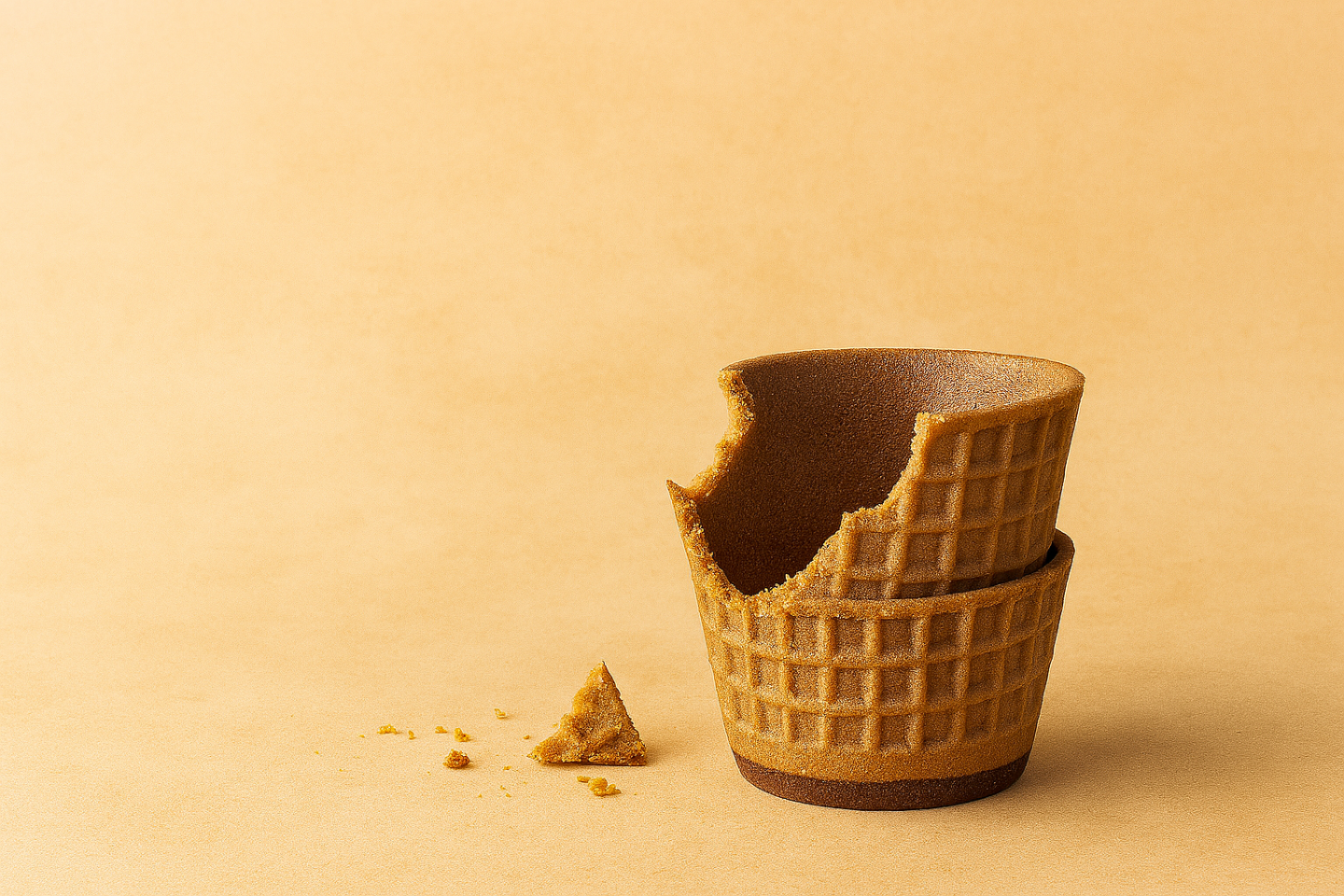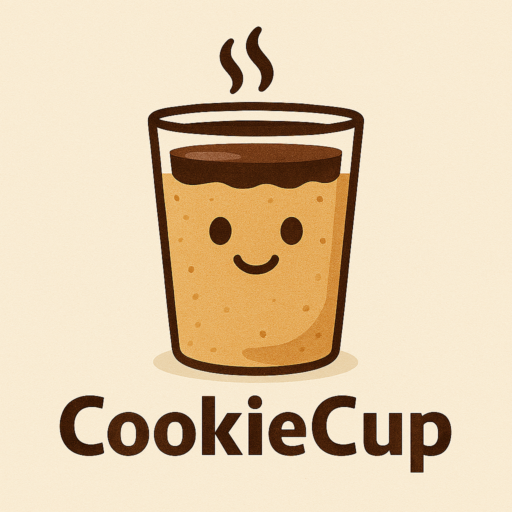INDUSTRY & COMPETITIVE ANALYSIS
What’s Going On in the Industry?
The edible coffee cup market is still emerging—small, niche, and experimental—but gaining momentum. More cafés, food brands, and event organizers are exploring alternatives to wasteful single-use cups. Instead of tossing your cup, you could eat it.
- Market size estimates range from $25 million to $200 million in 2024.
- Annual growth predicted at 10–25% over the next decade.
- Europe leads, with North America and Asia growing steadily.
(Open PR, 2024; Deep Market Insights, 2024; HTF Market Intelligence, 2023)
Why Are People Interested?
- Plastic and paper cup waste is a massive environmental issue.
- Most paper cups are plastic-lined and hard to recycle.
- Many cities/countries are banning single-use plastics or taxing them.
- Consumers, especially younger ones, seek eco-friendly yet convenient products.
- Edible cups offer novelty and can help build brand loyalty.
(Open PR, 2024; ScienceDirect, 2023)
Challenges
- Durability: Needs to hold hot liquids 30–60 minutes.
- Cost: More expensive than paper/plastic, harder to justify price.
- Food safety & shelf life: Health compliance, allergen labeling, freshness.
- Consumer mindset: Some find edible cups weird or prefer disposable ease.
(HTF Market Intelligence, 2023; Food Navigator, 2023)
Key Players
| Brand | What Makes Them Interesting |
| Cupffee | Crunchy wafer-style cups holding coffee for 40+ minutes. (Food Navigator, 2023) |
| Good-Edi | Made from oat bran and wheat flour; compostable if not eaten. (Deep Market Insights, 2024) |
| Stroodles | From pasta straws to edible cups and plates. (Wise Guy Reports, 2024) |
| Loliware | Seaweed-based edible packaging (cups, straws, etc.). (Wise Guy Reports, 2024) |
Competitive Landscape
- Competing alternatives include:
- Reusable cups (e.g., KeepCup, Starbucks).
- Compostable cups (plant-based or PLA-lined).
- Biodegradable liners & tech mimicking traditional cups.
Edible cups are unique for eliminating post-use waste and adding a novel experience but aren’t yet cost-effective or durable enough for mass adoption.
(ScienceDirect, 2023; HTF Market Intelligence, 2023)
Opportunities
- Target cafés and coffee chains seeking sustainability differentiation.
- Event companies aiming for zero-waste solutions.
- Tourism and gifting markets (branded edible cups at festivals, hotels).
- Premium, feel-good experience product rather than mass replacement.
(Open PR, 2024; Wise Guy Reports, 2024)
Summary: Should You Care?
Yes, especially if you’re in sustainability, food innovation, or coffee culture.
- Novelty appeal draws customers.
- Aligns with eco regulations and trends.
- Space to innovate materials and design.
Success requires balancing eco-friendliness, function, and cost while telling a compelling brand story.
(Open PR, 2024; HTF Market Intelligence, 2023)
| Category | Key Points |
| Market Size | $25M–$200M (2024 est.) |
| Growth Rate | 10–25% annually |
| Hot Regions | Europe leads; North America & Asia growing |
| Why It Matters | Eco-friendly, zero waste, aligns with regulations & consumer trends |
| Main Challenges | Durability, cost, shelf life, consumer perception |
| Top Players | Cupffee, Good-Edi, Stroodles, Loliware |
| Competitors | Reusables, compostables, biodegradable cups |
| Best Use Cases | Cafés, events, tourism, premium gifting |
| Winning Strategy | Balance eco + function + cost; strong brand storytelling |
References
- Open PR (2024)
“Edible Coffee Cup Market to Reach USD 149 Million by 2031, Driven by Sustainability Trends”
https://www.openpr.com/news/4072335 - Deep Market Insights (2024)
“Global Edible Coffee Cup Market Research Report (2024–2030)”
Provides analysis of material types, regional forecasts, and key players.
https://deepmarketinsights.com/report/edible-coffee-cup-market-research-report - HTF Market Intelligence (2023)
“Global Edible Cup Market: Trends, Growth, and Forecast (2023–2029)”
Includes SWOT, competitive benchmarking, and innovation trends.
https://www.htfmarketintelligence.com/report/global-edible-cup-market - Wise Guy Reports (2024)
“Edible Coffee Cup Market 2024 Global Share, Size, Trends, Demand, Forecast to 2035”
Projects market value up to $5 billion by 2035.
https://www.wiseguyreports.com/reports/edible-coffee-cup-market - ScienceDirect (2023)
“Life Cycle Assessment of Edible Cups: Environmental Comparison with Paper, PLA, and Polystyrene Alternatives”
Scholarly article comparing impact scenarios of edible vs. non-edible cups.
https://www.sciencedirect.com/science/article/pii/S0921344923004548 - Food Navigator (2023)
“Cupffee: Edible Coffee Cup Developed from Oat Bran and Wheat Flour”
Business profile and case study on Cupffee’s market entry and production scale.
https://www.foodnavigator.com/Article/2023/05/31/cupffee-edible-coffee-cup-developed-from-oat-brand-and-wheat-flour

